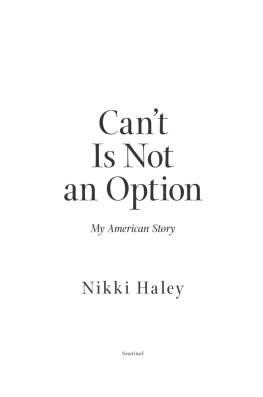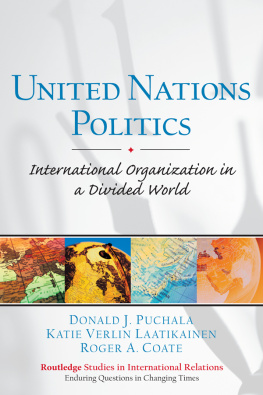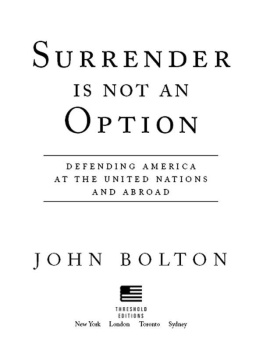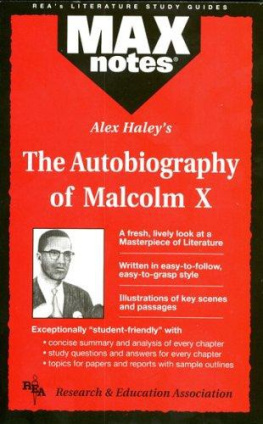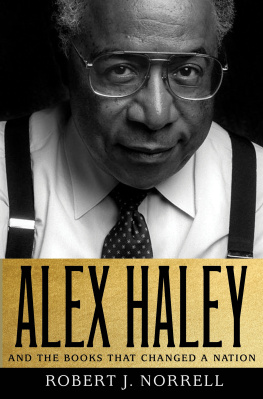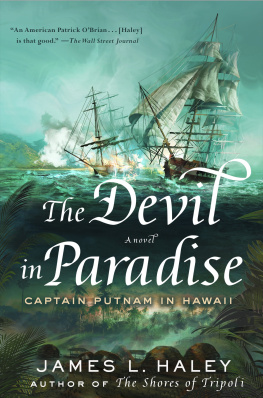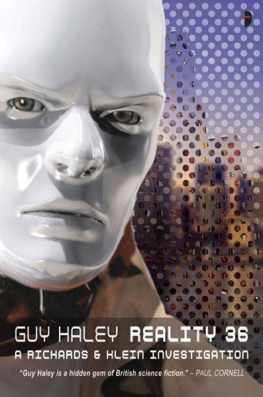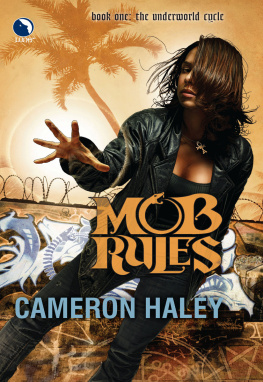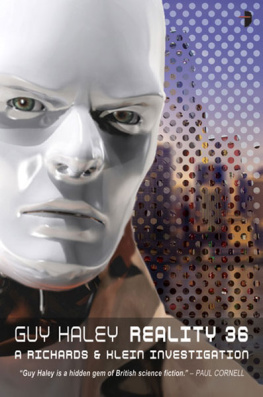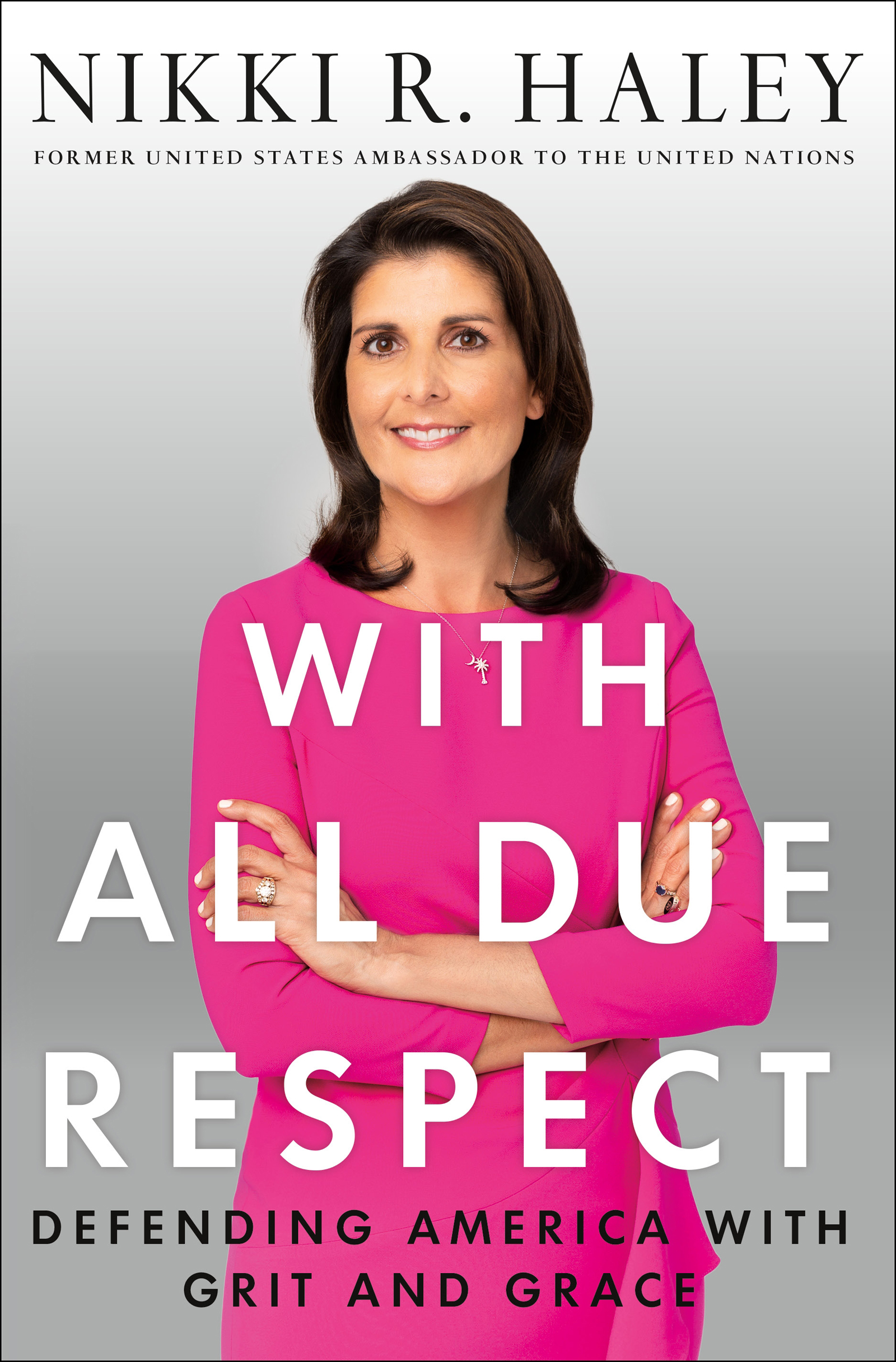The author and publisher have provided this e-book to you for your personal use only. You may not make this e-book publicly available in any way. Copyright infringement is against the law. If you believe the copy of this e-book you are reading infringes on the authors copyright, please notify the publisher at: us.macmillanusa.com/piracy.
TO THE PEOPLE OF AMERICA: I HOPE THIS IS A REMINDER THAT ON OUR WORST DAY, WE ARE BLESSED TO LIVE IN AMERICA.
O n August 22, 2017, I boarded a flight to Vienna, Austria. It was a flight that almost didnt happen.
I was going to visit the United Nations agency in charge of nuclear-weapons inspections, the International Atomic Energy Agency (IAEA). As Americas ambassador to the United Nations, my mission was to explore Iranian compliance with the nuclear deal that the Obama administration and much of the world had agreed to in 2015.
A month before, in the Oval Office, I had discussed this subject with President Trump. He viewed the Iran deal as deeply flawed and dangerous, and he was frustrated that his national security team had persuaded him to stick with the deal twice already that year. He was looking for a way out.
I agreed with the president. The Iran deal was a disaster for American interests. I told him we needed to lay a stronger public foundation for why we should get out of the deal. He eagerly agreed, saying Rex [Secretary of State Rex Tillerson] hasnt done a fing thing on it. And Im not going to renew this thing again.
I was excited that the president wanted me to pursue this direction. My first move was going to see the nuclear inspectors in Vienna.
Not everyone in our government liked that idea.
ON A WARM AUGUST NIGHT, shortly after our Oval Office discussion, President Trump, Secretary of State Rex Tillerson, and I were gathered poolside at the presidents golf club in Bedminster, New Jersey.
Families relaxed amid harried national security aides. Children ran and jumped in the pool as officials moved from meeting to meeting. And in a cottage down the way, the foreign policy of the nation was being decided.
We were there to talk about North Korea and other national security issues. Joining Secretary Tillerson and me were National Security Advisor H. R. McMaster and brand-new White House Chief of Staff John Kelly. It was no secret that Rex and I had had our differences. But that night they reached what one anonymous White House source would call World War III levels.
Tensions were already high from an earlier meeting that day. Rex had been arrogant and condescending. He gave off the unmistakable impression that he knew more than everyone else in the roomincluding the president. And I will confess that I have never been good with people who are so convinced of their superiority that they refuse to hear anyone else out. Dealing with Rex could be exhausting.
Tillerson opposed U.S. withdrawal from the Iran deal, and he was not alone in that view within the administration. My perspective was different. I had been heavily engaged at the UN in negotiating sanctions on the North Korean regime for their nuclear-weapons and ballistic-missile programs. I knew how important it was that the United States send a strong signal to the North Korean dictator Kim Jong Un that we werent going to accept from his country the kind of deal we had accepted from Iran. If we were serious about ending the North Korean nuclear threatand we werewe had to let North Korea know what our redlines were. Further, I had seen how Iran had used the weak UN resolution that had embraced the nuclear deal to justify every type of its bad behavior, including the development of ballistic missiles capable of carrying nuclear weapons.
My case to the president was straightforward: The Iran deal had been sold dishonestly to the American people, without any significant debate about its merits. Majorities in both houses of Congress had voted against it. The American people needed to hear why this agreement was bad for our national security, I said.
I told the president of my intention to travel to the IAEA to start the process that he and I had discussed.
At that point, Secretary Tillerson inserted himself into our conversation.
No, were not going to do this, he said.
I looked at him, stunned. I wasnt asking for his permission. I was asking the president.
I have staff in Vienna, he said. Theyre meeting with the IAEA. Everything is fine. We dont need to do anything.
I strongly suspected that Rex was making things up as he went along. I had heard nothing about his staff consulting with the IAEA about the Iran deal.
I said, Rex, why cant I go to Vienna? I just want to ask questions.
You dont need to, he said. You need to stay out of it.
I regretted that our disagreement had to play out in front of the president, but I wasnt about to back down. I was a member of the presidents cabinet and the National Security Council, just as Rex was. We had already extended the Iran deal twice to give our European allies the chance to demand that Iran change its aggressive behavior. They hadnt. And Irans violent suppression of the Iranian people and its support for terrorism had only increased since the nuclear deal was signed.
The Iranian regime wasnt becoming less dangerous, it was becoming more so. And I knew the only way to focus the international community on the danger posed by Iran was to threaten the nuclear agreement.
Rex and I continued to argue back and forth. I should stay in my lane, he said. I had no business in the matter. I responded that Iran was in violation of multiple UN Security Council resolutions for its support of terrorism, ballistic-missile launches, and weapons exports. This was most definitely my business.
Rex, whats wrong if she goes to Vienna? President Trump said. I dont think its a bad thing.
Then the president decided he had had enough.
You all get together and figure this out, he said.
I had said what I needed to say alreadyto the president. He had okayed my plan. It would have been great to have Rex on board, but I didnt need his approval, and I wasnt going to wait for it.
Rex and I never agreed on the Iran deal. But within the sixty-day timetable I had promised the president, I did go to Vienna. Two weeks later, I made a major speech outlining the serious problems with the agreement and describing why the president would be justified in abandoning it. On October 13, President Trump decertified the deal, and on May 8, 2018, he announced the United States was withdrawing from it.
The exchange that August night between Rex and myself at Bedminster was unusual. The president would later say, I have never seen anybody be treated the way Rex treated Nikki. Even in the Trump administration, this wasnt how policy was typically made. But the incident was also a great snapshot of my relationship with the president. When I had an idea about a direction for U.S. foreign policywith regard to Iran, Venezuela, North Korea, or elsewhereI could pick up the phone and call the president. Our communication was nearly constant, and it was straightforward. We didnt always see eye-to-eye. Sometimes I called to privately express my disagreement with a policy. But he always took the call and he always listened. Usually, as in the case of the Iran deal, we agreed.
The result was that I had unusual latitude to operate as U.S. ambassador to the United Nations. I was free to largely chart my own courseand I did. It was not a typical situation for a UN ambassador. But President Trump and I understood each other. I knew my responsibility to act in accordance with his objectives. And he trusted me enough to allow me to be flexible with how I executed his wishes. He also knew I would be honest with him when I disagreed, and he appreciated that.


